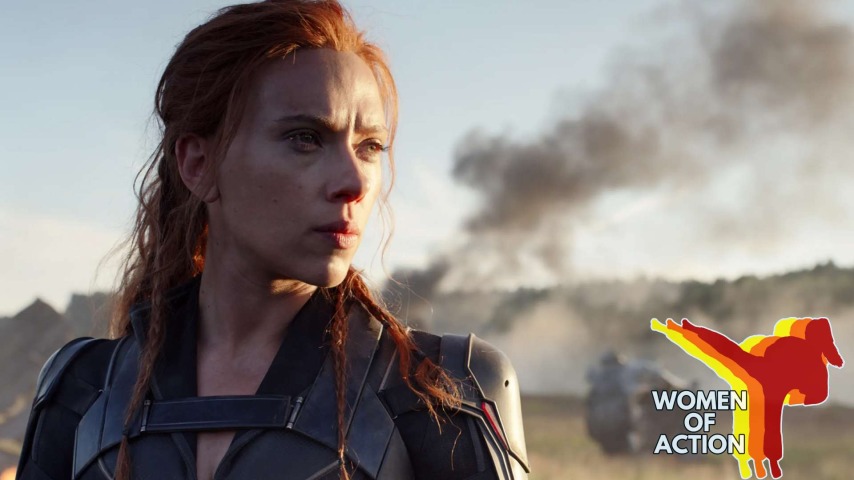The Black Widow movie was too little, too late
Scarlett Johansson's Natasha Romanoff was one of the longest-tenured Avengers, though by the time the MCU focused on her, her time was already up.
Photo: Disney
With Women Of Action, Caroline Siede digs into the history of women-driven action movies to explore what these stories say about gender and how depictions of female action heroes have evolved over time.
When Iron Man 2 debuted on DVD back in 2010, Marvel Studios head honcho Kevin Feige teased that a Black Widow solo movie was on the table. A few months before Captain America: The Winter Soldier hit theaters in 2014, Feige noted that a Black Widow project was in the early stages of development. And in the summer of 2016, Feige promised that Marvel was “creatively and emotionally” committed to doing a Black Widow movie. So when would Scarlett Johansson’s Natasha Romanoff finally get her own standalone adventure? Not until Avengers: Endgame had already killed her off and skimped out on her funeral, in a 2021 film set in the most natural place of all: Between the final act and last scene of 2016’s Captain America: Civil War.
Not since the Fast & Furious franchise has there been a more hilariously convoluted use of a cinematic universe’s timeline. Despite debuting in the MCU before Thor or Steve Rogers and despite quietly being the most loyal Avenger of them all, Nat got a pretty ignoble finale. The Black Widow movie is an “oops, sorry we didn’t do this earlier” one-off that largely seems to exist to introduce Florence Pugh’s Yelena Belova as her successor. And while investing in Pugh has paid dividends for Marvel, particularly in this month’s surprisingly great Thunderbolts* movie, it’s hard not to feel like the MCU’s original heroine deserved better.
Though there have been live-action female superheroes before and after Johansson’s Black Widow, the character is unique for the way her decade-long cinematic run perfectly aligns with the rise of internet-fueled fourth-wave feminism. It’s worth remembering what the dominant geek media voice was like when Johansson debuted in Iron Man 2. IGN’s 2010 reporting on a potential Black Widow solo movie opens with the header “Scarlett Johansson + More cat suit = Nerdvana” and ends with the line “Hollywood plans to keep Cleavage Johansson fighting crime and wearing only tight things for quite some time. It’s good to be a geek.”
It’s impossible to overstate just how different nerd culture was in the first decade-and-a-half of the 2000s. By 2021, the idea of a Black Widow movie exploring female solidarity against patriarchal oppression felt obvious, if not a little corny. Iron Man 2, however, takes it as a given that the main reason to have Johansson in the movie is straightforward sex appeal. The poster poses her curls down and butt straight towards the camera, in the sort of stance that almost looks like a parody now. And the movie has Pepper introduce Nat to Tony as “potentially a very expensive sexual harassment lawsuit if you keep ogling her like that.”
It really is wild that Marvel made 20 movies over 11 years before they finally got to one starring a woman with 2019’s Captain Marvel. Somehow Marvel had more faith that people would want to see a talking raccoon than a leading lady superhero. And while the studio’s TV output has long done a better job centering female protagonists, the movies are still playing catch-up. Even if we generously include Eternals and Thunderbolts* as female-led ensemble movies, only six of Marvel’s 36 movies have put women front-and-center. (For comparison, Ryan Reynolds alone has played a comic book character in that many movies.)
In fact, one of the funnier trends of female-led superhero movies of the cinematic universe era is how many of them take place in the past—from Wonder Woman in the 1910s and 1980s to Captain Marvel in the 1990s to Madame Web in the 2000s. Studios want you to know female heroes have always been there, they just don’t want to show you their adventures in the present. And that’s exactly what wound up happening with Natasha and her weird four-years-earlier solo film. I vividly remember going into Black Widow assuming it would do something clever and intentional with the fact that we know Nat dies—maybe even going so far as to bring her back to life somehow.








































